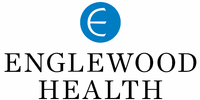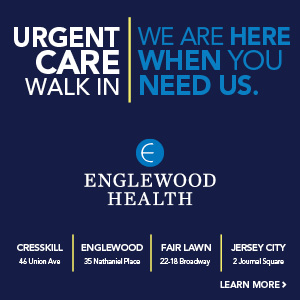When was the last time you saw your gynecologist? Do you know why they are performing that Pap test? Should young women be screened for cervical cancer? What about women in their 80s –do they still need screening?
It is time to understand gynecologic cancer more fully.
Nimesh Nagarsheth, MD, director of gynecologic oncology and robotic surgery at Englewood Health sheds light on those “down there” topics women are often afraid to talk about.
 “Many women remember their grandmothers, or even their mothers, sitting around the kitchen table talking in hushed voices with friends or family about ‘women’s diseases,’ particularly cancer,” says Dr.Nagarsheth. “Today, much more is understood scientifically about gynecologic cancers, and yet a lot of that information is still not discussed.”
“Many women remember their grandmothers, or even their mothers, sitting around the kitchen table talking in hushed voices with friends or family about ‘women’s diseases,’ particularly cancer,” says Dr.Nagarsheth. “Today, much more is understood scientifically about gynecologic cancers, and yet a lot of that information is still not discussed.”
Here is what Dr. Nagarsheth wants you to know…
Cervical Cancer
Did you know that cervical cancer is caused by an infection from certain types of the human papillomavirus (HPV) that is sexually transmitted?
Advances have been made in the understanding, prevention, and treatment of cancer of the cervix over the past 10 years. Cervical cancer most commonly occurs in women over age 30. Screening (Pap test and HPV test) and HPV vaccination can detect and prevent cervical cancer.
Today, when cervical cancer is diagnosed in its early stages it is highly treatable with good long-term outcomes. If you are older than 65, talk with your doctor about whether you might still benefit from cervical cancer screening.
Ovarian Cancer
Did you know that advanced treatment options, including minimally invasive surgery and targeted therapies, are leading to greater long-term survival for many women with ovarian cancer?
Unfortunately, ovarian cancer is usually diagnosed at later stages, when women are experiencing secondary symptoms because an ovary has enlarged due to a tumor, or the cancer has spread. Patients frequently report abdominal pain or intestinal discomfort and that may be their first symptom.
At Englewood Health, many ovarian cancer surgeries are performed robotically, allowing complex procedures to treat ovarian cancer to be performed minimally invasively. The gynecologic oncology team at Englewood Health’s Lefcourt Family Cancer Treatment and Wellness Center is the on the cutting edge of new standards for using immunotherapy to treat advanced ovarian cancer.
Today, we know that genetics plays a role in ovarian cancer. Women with a family history of ovarian cancer, or those with a BRCA1 or BRCA2 gene mutation, among others, are at higher risk.
Therefore, if your family has a BRCA mutation or family history of ovarian cancer, ensure your gynecologist and primary care doctor are aware and more surveillance and genetic counseling may be needed. Speak to your gynecologist about potential risk-reducing options.
Uterine Cancer
Did you know that uterine cancer more commonly occurs between ages 50 and 60?
While there is no known single cause of uterine cancer, women of all ages may have a higher risk if they have a family history of uterine cancer, or a BRCA mutation. Other risk factors include obesity, menstruation before age 12 or menopause after age 52, history of infertility, have never given birth, diabetes or hypertension (high blood pressure), a family history of hereditary nonpolyposis colorectal cancer, endometrial hyperplasia, and polycystic ovarian syndrome.
Symptoms of uterine cancer may include abnormal bleeding, pain or difficulty urinating, pelvic pain, and unexplained weight loss. These symptoms are also associated with other conditions, so, you should talk with your doctor, especially if your symptoms are daily and persistent. If uterine cancer is suspected, your gynecologist may perform an ultrasound, endometrial biopsy, or hysteroscopy to look inside the uterus and take a tissue sample for biopsy.
_2.jpg)
Dr. Nagarsheth adds, “The gynecologic cancer experts at Englewood Health customize treatment plans with each patient to ensure that every woman receives the most appropriate treatment for them. Our team also offers genetic counseling for those with a family history of ovarian or uterine (endometrial) cancer and other cancers or those with a BRCA mutation or other clinically significant genetic mutations.”
Englewood Health is also a national leader in the field of robotics and is one of just two case observation sites on the east coast for use the da Vinci surgical robot (the most advanced platform for minimally invasive surgery) in gynecologic oncology. Englewood Health recently expanded its robotic surgery program with the acquisition of a third da Vinci robot.
So, ladies, you as a Bergen mama, your young adult daughter, and your “little mama” need to be aware of gynecologic cancers. Talking about them with family and friends is an effective way to help all women throughout Bergen County stay healthier.
To learn more about gynecologic cancers, visit englewoodhealth.org/cancer









